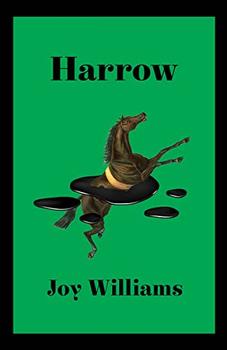Summary | Excerpt | Reviews | Beyond the Book | Readalikes | Genres & Themes | Author Bio

A novel
by Joy WilliamsBook One
If they do this when the wood is green,
What will happen when the wood is dry?
—Luke 23:31
My mother and father named me Lamb. My mother believed that I had died as an infant but had then come back to the life we shared. As I grew, her intention and need was to put me in touch with where I had been when I was dead, what I remembered of it and what I had learned. She believed I was destined for something extraordinary.
My father did not believe I had ever been dead. Nor did any of the doctors they consulted.
A young man was watching me the night I was said to have died. He did not harm me was the truth of it. It was just a story that was to grow up around us both, causing us both to be outcasts.
My mother and father were at a dance, the first dance of the summer.
My mother lacked good judgment in many things. She would be the first to admit it. She had taken up with this young man who was still a teenager a little more than a month after I was born. He was a town boy, he delivered our groceries and was Catholic as well. His mother made him go to St. Margaret's but to my mother he railed against the constraints of the church. She found him sweet—his sometimes impotence, his muscles, his dark, dark hair, his inchoate manner of thinking . . . sweet.
She enjoyed having him explain Purgatory to her.
"They abolished it," he said.
"How utterly ridiculous. I just don't think they can do that, do you?"
"They did, but it still exists."
"And one should fear it but one should guard against excessive fear. One mustn't feel overwhelmed. One must always keep in mind that justice punishes and mercy pardons." She looked at him somberly.
"Correct."
"And tell me again how long a person of faith would have to spend there, assuming that even being very good this person would still manage to commit ten wrongs a day. Which is a conservative number by any reckoning."
A priest had told his mother that each wrong results in one hour of Purgatory. Even if you strive tirelessly to be good you'll be racking up faults by the thousands and will meet God dangerously in debt, the priest, a geriatric traditionalist, said. After fifty years, say, you've accumulated 150,000 faults and got rid of half of them through penance and good works but you'd still have 75,000 hours to pay down. And that would take seven years, ten months and fifteen days.
"I've told you what my mother was told," he said. "You're just fucking with me."
"I just love the calculations. They're so precise."
"They abolished it, but that doesn't mean we're relieved of the necessity of going there."
Yes, my mother found him sweet. His smooth face and square hands, the practiced roll of his walk, his threadbare jeans, the impracticality and poverty of his life. She arranged to have him babysit when she and my father went to the first club function of the new season. It amused her to hire her unlikely lover in this manner and bring him into the very heart of our home.
From birth I had been remarkably serene and considerate, seldom crying and sleeping straight through the night, so the likelihood was small that this directionless young man would have to have any interaction with me at all. If I cried he was to call them at the club.
The dance floor was laid out on the sand. It was Mexican Night, Fiesta Night in Olde New England. The following week it would be Argentine/Tango Night. Modest fireworks were being set off. A ragged hiss, then a streaming downward, the light enfolded by the waves. Small boats rocked gently on their moorings.
"There are some Mexicans, in Chiapas, I think, who believe the world's a cube," the man who would be commodore said.
"I want the tequila that's got the scorpion in the bottle," my mother said, laughing, and the people at their table laughed, too, for it's a worm, Martha, a worm . . .
Excerpted from Harrow by Joy Williams. Copyright © 2021 by Joy Williams. All rights reserved. No part of this excerpt may be reproduced or reprinted without permission in writing from the publisher.
Your guide toexceptional books
BookBrowse seeks out and recommends the best in contemporary fiction and nonfiction—books that not only engage and entertain but also deepen our understanding of ourselves and the world around us.